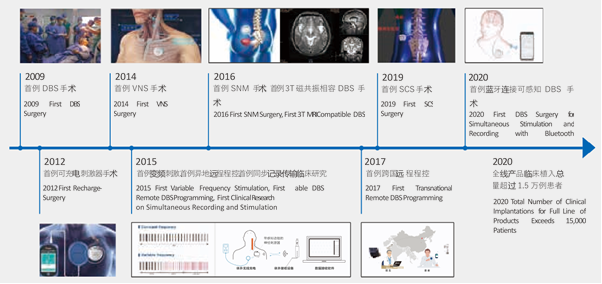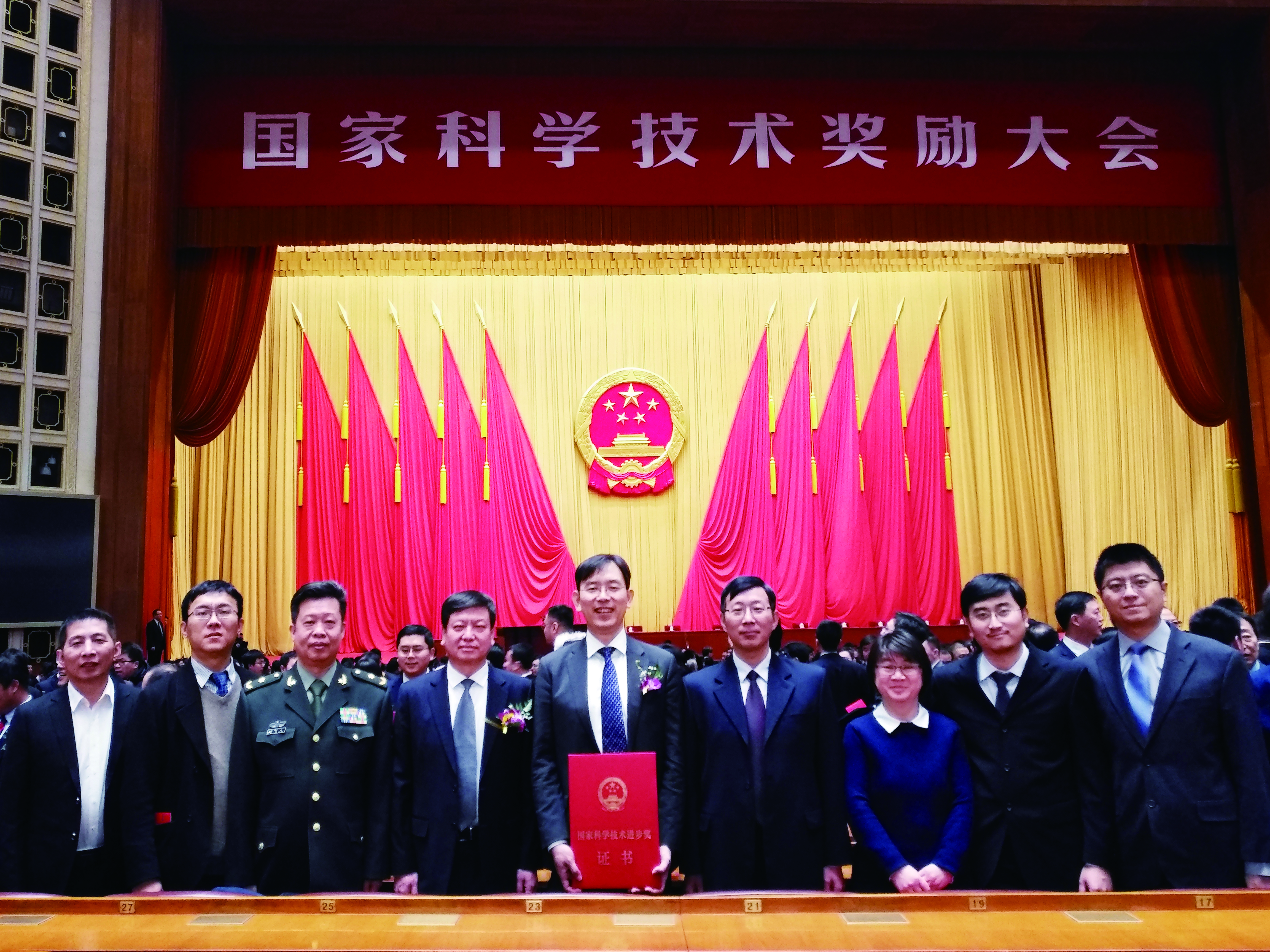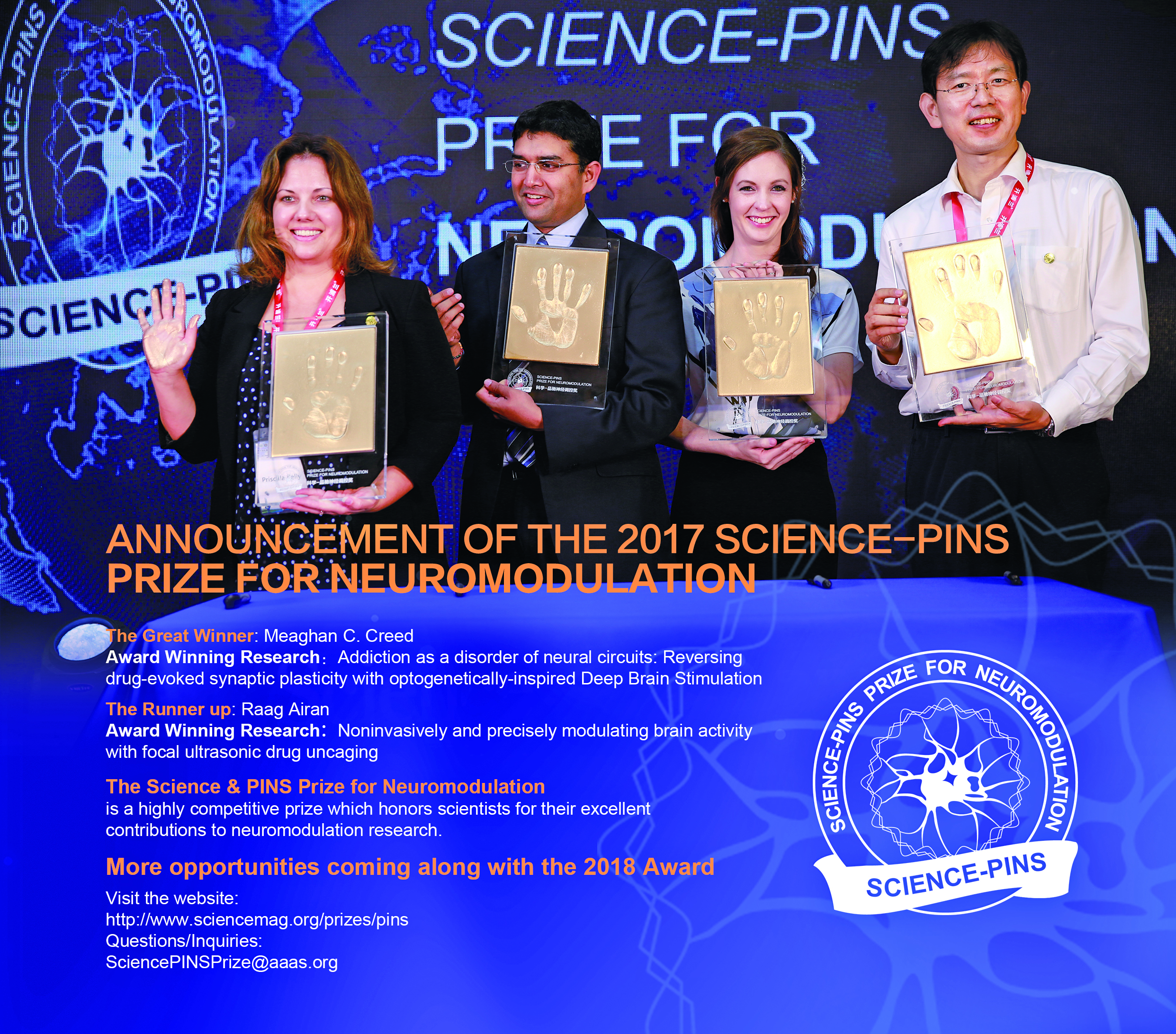The National Engineering Laboratory for Neuromodulation Technology had been in preparation since 2008 and was approved by the National Development and Reform Commission in 2012. The mission of the laboratory is to establish a leading innovative center for Neuromodulation technology, and promote translational research of neuromodulation from basic research to technology, products, and clinical applications. The legal entity of the laboratory is Tsinghua University, and the co-founding units are Beijing Tiantan Hospital and Beijing PINS Medical Co., Ltd. The laboratory has been in fully operational stage since 2016.
The laboratory is committed to performing joint research through Acedemic–Industrial–Clinical collaboration. We focus on the treatment of major neurological diseases such as Parkinson's disease, epilepsy, overactive bladder, pain, and related conditions. We successfully developed a series of neuromodulation implanted devices with independent intellectual property rights. We established three major systems of key technology, engineering manufacturing and clinical application. The annual implantation accounts for more than 60% domestically, which has become one of the mainstreams of clinical modulation in China.
The laboratory has successfully developed deep brain stimulators(DBS), vagus nerve stimulators (VNS), sacral nerve stimulators(SNM), and spinal cord stimulators (SCS). We also achieved breakthroughs in variable frequency
stimulation therapy, MRI compatible technology, remote program control technology, deep brain electrical signal perception, and closed-loop stimulation. In 2016, we cofounded the "Science -PINS Prize for Neuromodulation" together with Science magazine. This annual award has achieved great academic influence. In 2017, the lab established the "National Collaborative Innovation Alliance for Neuromodulation". We won the first prize of the National Science and Technology Progress Award in 2018. It is the first national first prize in the field of medical devices in China. While doing basic research and benefiting a large number of patients with neurological diseases, the laboratory also promotes the neuromodulation industry.
Our main research areas:
(1) Advanced technologies for high- end active implantable medical devices (AIMD)
(2) Neuromodulation methods for neurological and psychiatric disorders
(3) Fundamental mechanisms of neuromodulation
(4) Artificial Intelligence for Healthcare

Neuromodulation therapies widely used in clinical treatments
The family of brain stimulators

The history of technology development

Tsinghua Brain Stimulator won the First Prize of National Science and Technology Progress Award in China.

Science -PINS Prize for Neuromodulation

